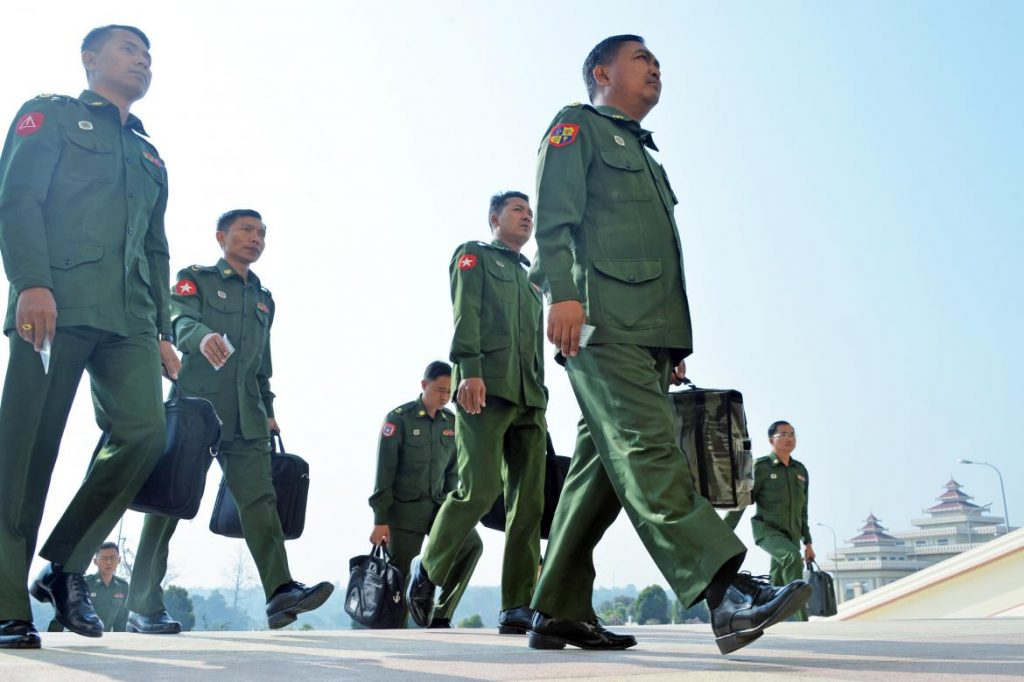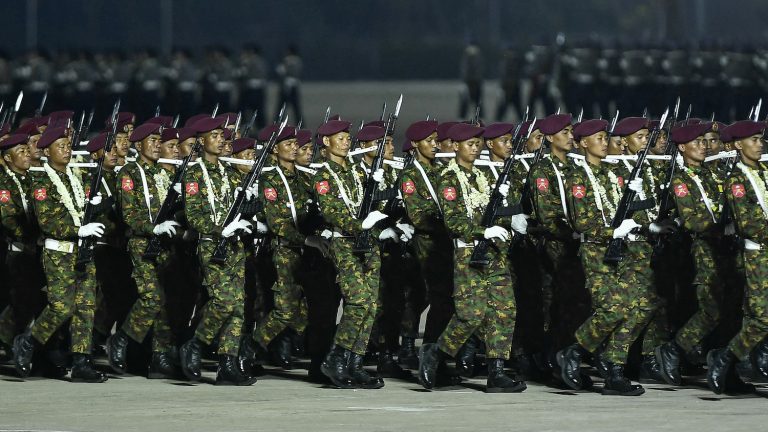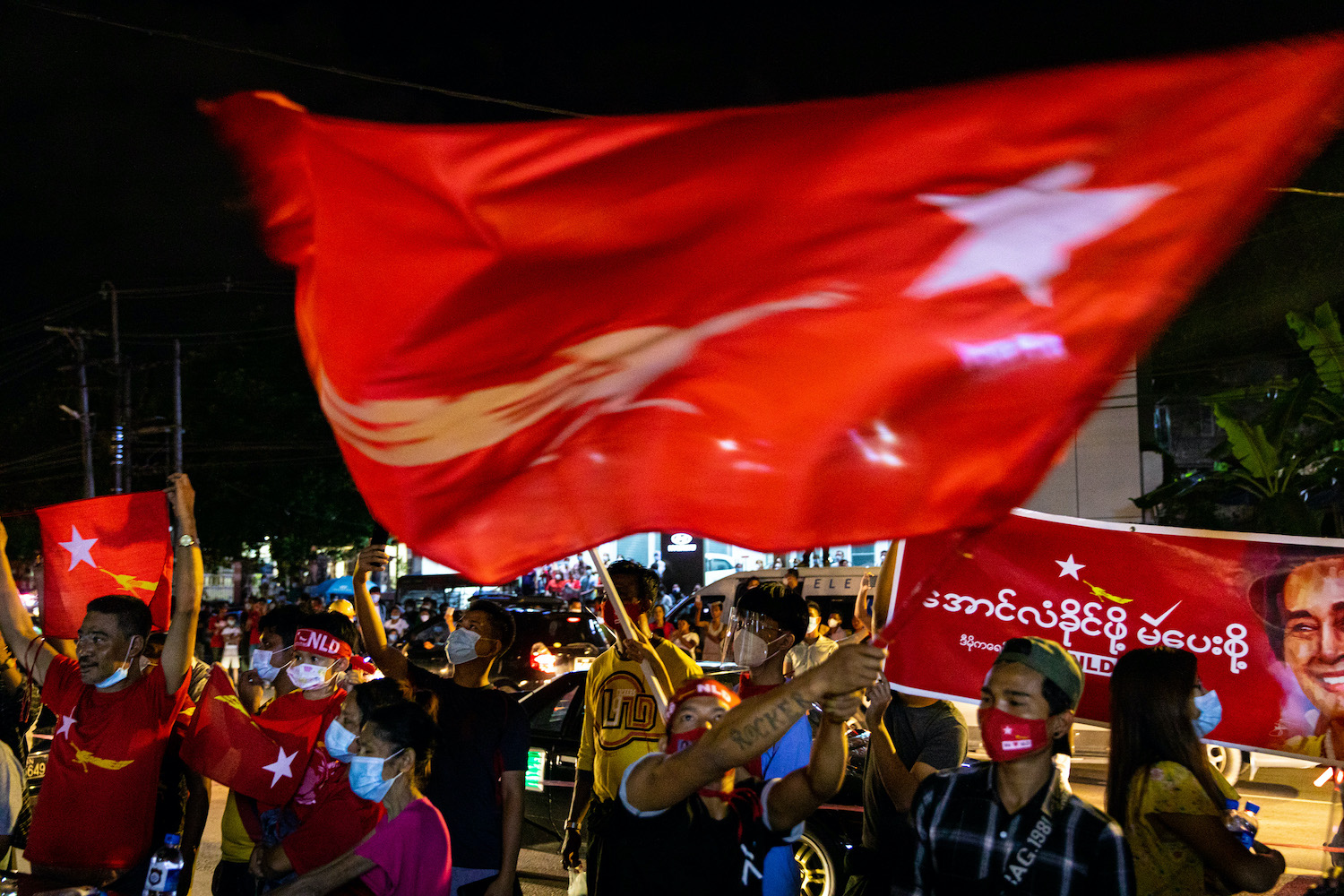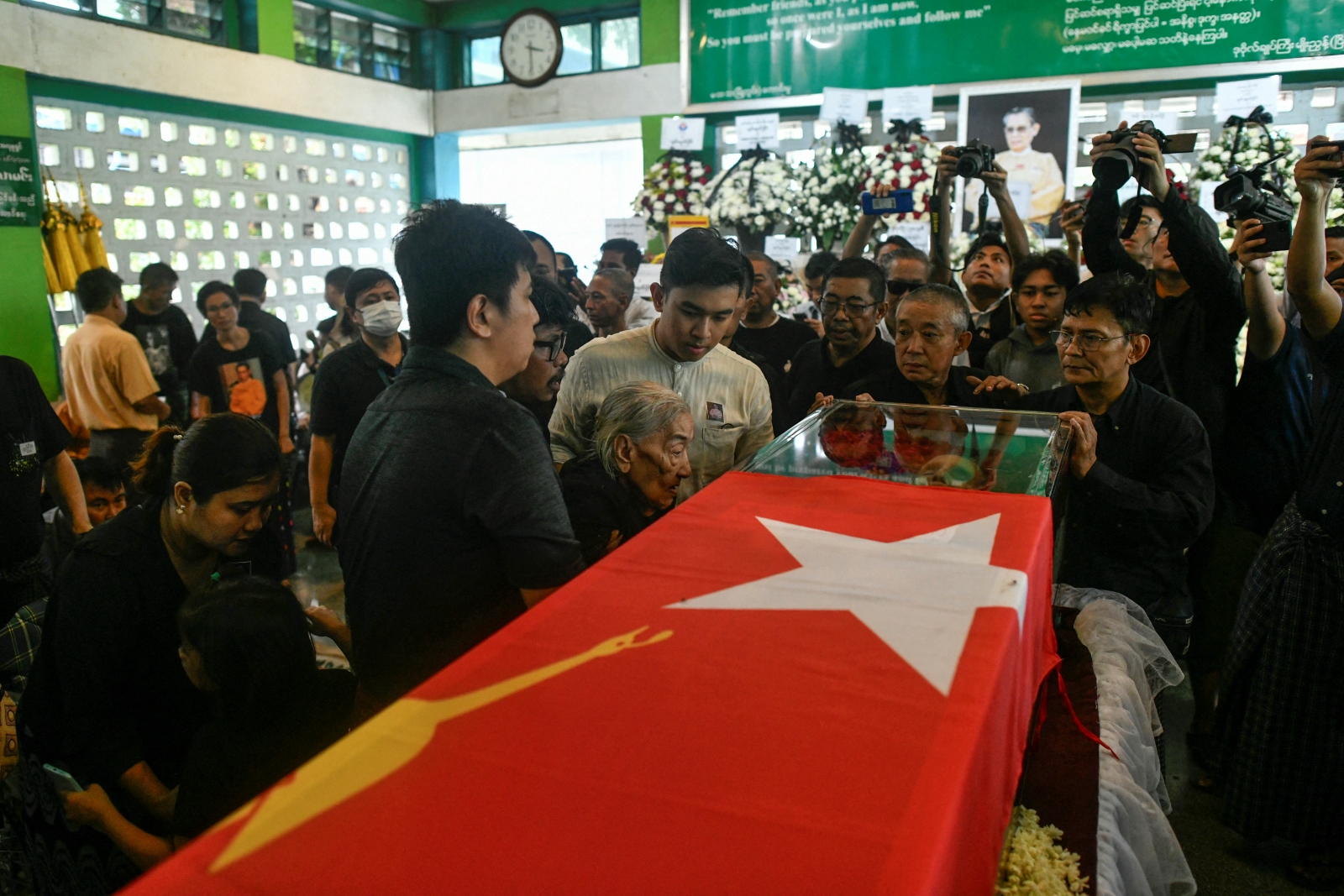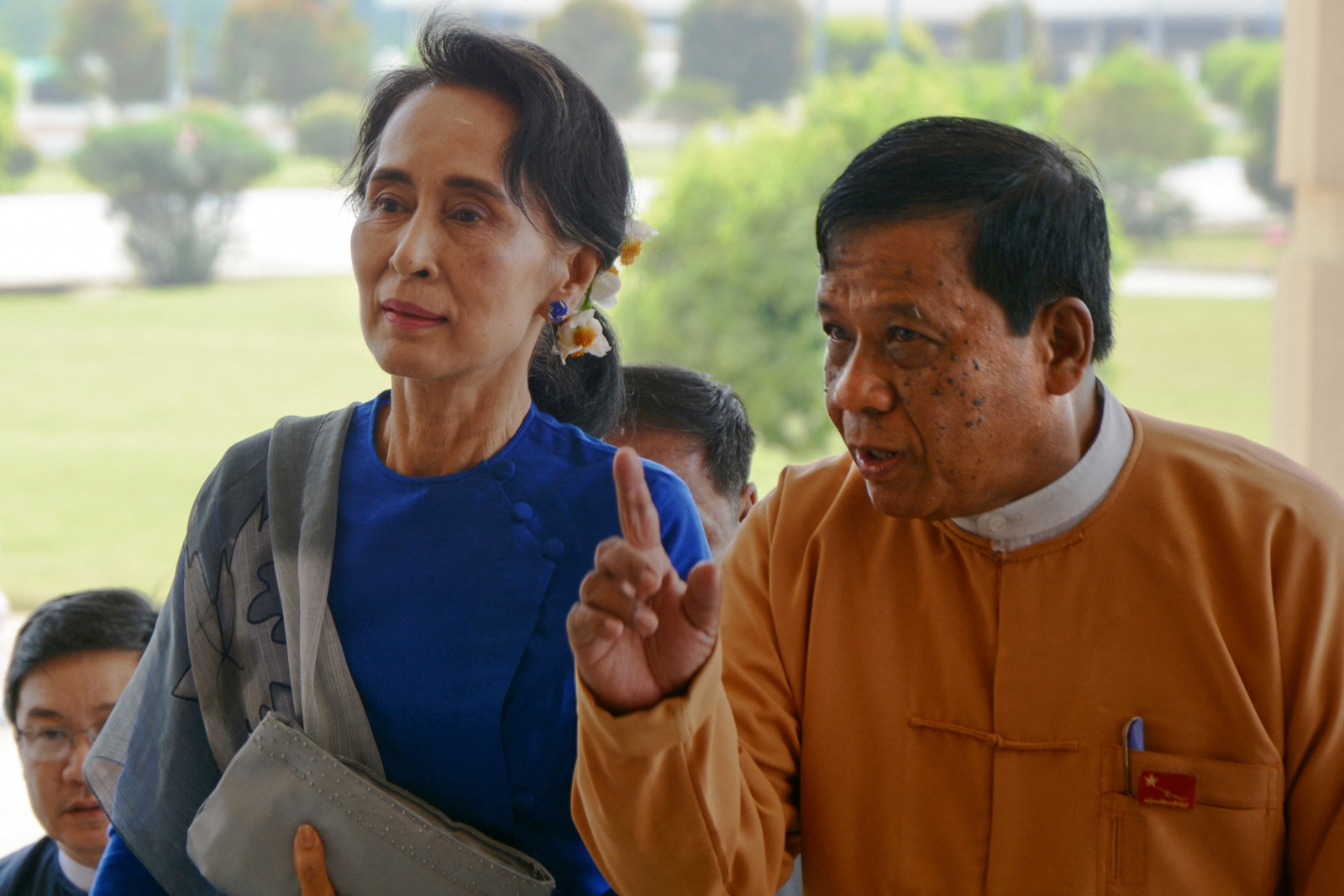Changes to the constitution proposed by the parliamentary Tatmadaw bloc indicate that the National League for Democracy’s campaign to reform the military-drafted charter is going nowhere.
By SITHU AUNG MYINT | FRONTIER
THE PROCESS launched by the National League for Democracy to amend the 2008 Constitution via a parliamentary committee has grown increasingly muddled. Thousands of proposals to the committee from nine parties have been joined by a separate set of proposals to amend the constitution from unelected Tatmadaw MPs and their allies in the Union Solidarity and Development Party, who have sought, unsuccessfully, to bypass the committee.
Consider some of the numbers: The 45-member Pyidaungsu Hluttaw Constitution Review Amendment Committee, the appointment of which was approved by the NLD-dominated Union Hluttaw in February and which includes the representatives of 14 parties and one independent MP, in July released a report containing 3,765 proposals to amend the charter. The Shan Nationalities League for Democracy proposed more than 1,100 changes, and a total of nearly 2,000 amendments have been sought by other ethnic-based parties. The NLD proposed 114 amendments and the USDP, 10.
The parliamentary Tatmadaw bloc, which opposed the move to appoint the committee at the outset because it said it breached procedures outlined in the military-drafted charter, has since February tabled several bills together with the USDP to amend different sections of the constitution. The Tatmadaw and USDP lawmakers wanted these bills to be debated and voted on within the parliament, rather than packaged with the almost 4,000 proposals submitted to the constitutional review committee. But to their frustration, the NLD-dominated parliament voted each time for the proposals contained in the bills to be sent to the committee.
The joint USDP-Tatmdaw bills included proposals focused on limiting the president’s executive power over state and regional governments, for instance by requiring the chief ministers of the states and regions to be elected by their respective hluttaws rather than being appointed by the president, as stipulated in section 261 of the charter.
Support more independent journalism like this. Sign up to be a Frontier member.
On September 17, 144 Tatmadaw MPs submitted another constitutional amendment bill, this time without USDP lawmakers. This bill is the starkest indication yet of the Tatmadaw’s stand on charter reform and enables a rough guess to be made on the likely outcome of the NLD’s own mission to amend the constitution.
The amendments sought by the Tatmadaw would replicate the provisions contained in section 59(f) – which outlines the eligibility qualifications for the president and the vice-president, and which the NLD has long wanted to abolish – in sections 232(a) and 261(a) of the constitution, which detail the necessary qualifications of Union-level ministers and the chief ministers of states and regions respectively.
Section 59(f) states that the president or vice presidents, as well as their parents, spouses, or legitimate children and their spouses, must “not owe allegiance to a foreign power” and “not be subject of a foreign power or citizen of a foreign country”. It is the reason why State Counsellor Daw Aung San Suu Kyi, whose sons are foreign citizens, is not eligible to be president.
The leader of the unelected Tatmadaw bloc, Brigadier-General Maung Maung, said the military MPs wanted these eligibility rules applied also to ministers and chief ministers to prevent foreign interference and espionage. This suggests a hardening of the Tatmadaw’s attitude towards Aung San Suu Kyi, who holds three minister-level positions.
The move is also seen as a rejoinder to plans aired by the NLD to seek a phased reduction in the number of unelected military MPs in the Hluttaw and reduce the Tatmadaw’s role in politics.
Meanwhile, the Constitution Review Amendment Committee is continuing its work and it is inevitable that a bill to amend the charter will be debated in the Hluttaw and put to a vote.
But the differing stands taken by the NLD and the Tatmadaw on constitutional reform underline the fact that, if one side does not agree, the charter cannot be amended.
Under the present circumstances, and considering the veto the constitution grants to the Tatmadaw over constitutional change, it seems almost impossible that the constitution can be amended to provide for a genuine federal democratic system and the gradual retreat of the military from politics.
But compromise could be found on less ambitious amendments to the constitution. The most likely candidate is the change to section 261 that would allow chief ministers of the states and regions to be elected by their respective hluttaws, which the Tatmadaw has supported but which is consistent with desires for federalism.


